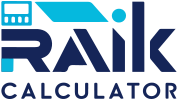Understanding WACC
WACC stands for Weighted Average Cost of Capital. It represents the average rate of return a company is expected to pay its security holders to finance its assets. In simpler terms, it’s the average cost of capital that a company must pay to fund its operations and growth. Calculating WACC helps businesses understand how much they need to earn on their investments to satisfy their investors.
Why is WACC Important?
WACC is crucial for several reasons:
- Investment Decisions: Companies use WACC as a hurdle rate when assessing new projects. If a project’s return exceeds WACC, it could create value for the company.
- Valuation: WACC is often used in discounted cash flow (DCF) analysis to determine the present value of future cash flows.
- Capital Structure Assessment: Understanding WACC helps companies balance debt and equity financing to minimize their overall cost of capital.
How to Calculate WACC
Calculating WACC involves determining the cost of equity and the cost of debt and weighting them based on the company’s capital structure. Here’s a simple formula for WACC:
WACC Formula
WACC=(EV×re)+(DV×rd×(1-T))text{WACC} = left( frac{E}{V} times r_e right) + left( frac{D}{V} times r_d times (1 – T) right)
WACC=(VE×re)+(VD×rd×(1–T))
Where:
EEE = Market value of equity
DDD = Market value of debt
VVV = Total market value of the company’s financing (Equity + Debt)
rer_ere = Cost of equity
rdr_drd = Cost of debt
TTT = Tax rate
Components of WACC Calculation
- Market Value of Equity (E): This is the total value of the company’s equity, calculated as the current share price multiplied by the total number of outstanding shares.
- Market Value of Debt (D): This includes all interest-bearing liabilities, such as bonds and loans, valued at their current market price.
- Cost of Equity (r_e): This represents the return that equity investors expect from their investment. It can be estimated using the Capital Asset Pricing Model (CAPM), given by:
re=rf+?×(rm-rf)r_e = r_f + beta times (r_m – r_f)re=rf+?×(rm–rf)
Where:
rfr_frf = Risk-free rate
?beta? = Measure of a stock’s volatility compared to the market
rmr_mrm = Expected return of the market
- Cost of Debt (r_d): This is the effective rate that a company pays on its borrowed funds. It can be calculated using the yield to maturity on existing debt or the interest rate on new debt.
- Tax Rate (T): The corporate tax rate that affects the cost of debt.
How Do You Calculate WACC?
To calculate WACC, follow these steps:
- Determine the Market Values: Calculate the market values of equity and debt using the formulas provided above.
- Calculate Cost of Equity and Cost of Debt: Use CAPM for cost of equity and determine the effective interest rate for cost of debt.
- Plug the Values into the WACC Formula: Use the WACC formula to compute the final value.
Example of WACC Calculation
Let’s say a company has:
- Market Value of Equity (E): $500,000
- Market Value of Debt (D): $200,000
- Cost of Equity (r_e): 8%
- Cost of Debt (r_d): 5%
- Tax Rate (T): 30%
First, calculate the total market value (V):
V=E+D=500,000+200,000=700,000V = E + D = 500,000 + 200,000 = 700,000
V=E+D=500,000+200,000=700,000
Next, plug these values into the WACC formula:
WACC=(500,000700,000×0.08)+(200,000700,000×0.05×(1-0.30))text{WACC} = left( frac{500,000}{700,000} times 0.08 right) + left( frac{200,000}{700,000} times 0.05 times (1 – 0.30) right)
WACC=(700,000500,000×0.08)+(700,000200,000×0.05×(1–0.30))
After calculating the values, you’ll get the WACC for the company.
WACC Calculator
To make things easier, you can use a WACC Calculator. This handy tool automates the calculations for you! Simply input your market values, costs, and tax rate, and let the calculator do the math. It’s a quick and effective way to find your WACC without the hassle of manual calculations.
Conclusion
Understanding and calculating WACC is essential for businesses to make informed financial decisions. By using a WACC Calculator, you can easily determine your company’s cost of capital and evaluate potential investments effectively.
